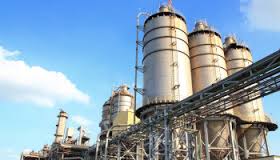Introduction
Pressure vessels, storage tanks, and piping systems together with rotating machinery for fluid transport represent major capital investment in any Oil/Gas Production operation. Good fabrication of these components, based on rigorous material selection is likely to provide long service life of equipment. Material degradation and aging requires application of adequate diagnostic techniques and continuous monitoring. Regular monitoring and inspection techniques can help in providing basis for estimating the health of the existing components of the equipment as well as the overall risk assessment.
The delegates will be introduced to the main points of inspection and testing of storage tanks and piping systems according to the relevant API standards in order to perform the fitness for service (FFS) analysis. The most up-to-date methods of equipment protection methodologies will be presented together with maintenance activities, including necessary repairs as prevention of failures. The training seminar will also cover methodology of the risk assessment and management regarding the overall equipment integrity
The seminar will include several workshops with real problems from industrial practice which will enable discussions and exchange of experiences
The training seminar will feature:
- Safety in operation and maintenance of pressure stationary equipment and pipelines
- Efficient operation, diagnostics and maintenance of rotating equipment
- Material degradation, ageing, and modes of failure
- Diagnostics methods including inspection procedures
- Equipment maintenance best practices
- Repair and revitalization technologies
Objectives
By the end of this training seminar, the participants will be able to:
- Follow the requirements of industry inspection standards and practices
- Identify elements of safety of pressure vessels, storage tanks and pipelines
- Apply diagnostics and inspection procedures to pressure equipment
- Analyze results of condition monitoring and vibration control of rotating equipment
- Plan and manage activities related to maintenance and repair
Training Methodology
The training seminar will be conducted along workshop principles with formal lectures and interactive worked examples included in several workshops. Presented also will be several illustrative and instructive videos. The emphasis in the seminar will be on the explanation of all technical points and providing answers to problems that are encountered in everyday industrial practice related to operation and maintenance, as well as repair and alterations of pressure equipment.
Each learning point will be reinforced with practical examples. There will be ample opportunities for active discussion and sharing professional experiences and exchange that will help solidify the gained knowledge. All seminar materials will be provided.
Organizational Impact
Proper design and construction of new plant with appropriate specification would result in significant measurable improvements in process plant systems including: improved plant integrity, reliability and availability with fewer failures. Leading to:
- Improved plant integrity
- Improved equipment reliability
- Improved equipment availability
- Better safety record
- Improved plant profitability
- Improved plant integration and operation
Personal Impact
Delegates will enhance their competencies in the following areas:
- Oil & Gas Process plant design
- Knowledge of rotating equipment and static plant construction and design
- Commissioning, inspection & testing
- Knowledge of the requirements and application of relevant sections of the ASME Boiler and Pressure Vessel Code and B31 Piping Codes
- Management of reliability as applied to process plant
Who Should Attend?
The training seminar is suitable to a whole range of professionals but will greatly benefit:
- Operation, technical service and maintenance professionals
- Technical professionals responsible for maintenance and repair of equipment
- Professionals involved in inspection and maintenance and repair
- Technical professionals dealing with risk assessment and integrity analysis
- Technicians dealing with regulating and metering and other measurements
SEMINAR OUTLINE
DAY 1
Stationary Equipment - Technical Characteristics & Operational Safety
- Above Ground Storage Tanks: Operation & Safety
- Pressure Vessels, Heat Exchangers and Steam Boilers
- Pipelines & Piping Systems: Operation & Safety
- Pressure Relief Valves: Selection & Sizing
- ASME BPV VIII & ASME B31.3 Standards and API Inspection Codes
DAY 2
Rotating Equipment - Operation, Efficiency & Safety
- Centrifugal pumps: Maintaining NPSH and Prevention of Cavitation
- Reciprocating & rotary pumps
- Centrifugal compressors: Anti-surge control and Choke conditions
- Reciprocating & rotary compressors
- Safety issues, troubleshooting and problem solving of rotating equipment
DAY 3
Diagnostics of Equipment Failure & Root Cause Analysis
- Material degradation & failures of stationary & rotating Equipment
- Failure modes, effects and diagnostics analysis (FMEDA)
- Diagnostics of fatigue, cracks, &ruptures: Fitness For Service (FFS) Analysis
- Root cause analysis (RCA) of failures
- Risk Management & Mitigation Technologies: ALARP criteria
DAY 4
Inspection, Monitoring & Mechanical Integrity Evaluation
- Risk Based Inspection (RBI API 580) for stationary pressure equipment (NDT)
- Pipeline internal and external corrosion direct assessment (ICDA & ECFA) methods
- Pigging of complex onshore and offshore pipelines
- Rotating machinery condition monitoring
- Vibration analysis including rotor balancing, shaft alignment techniques
DAY 5
Maintenance & Repairs Organization & Management
- Storage Tanks: External & Internal Maintenance Techniques
- Cathodic Protection of Pipelines and Storage Tanks
- Coating & Thermal Protection
- Repair Technologies
- Summary and Conclusions

